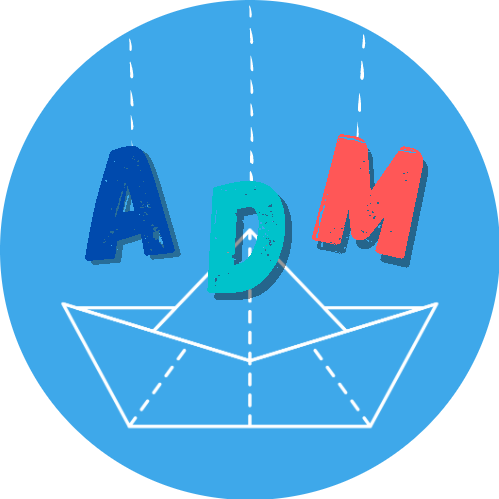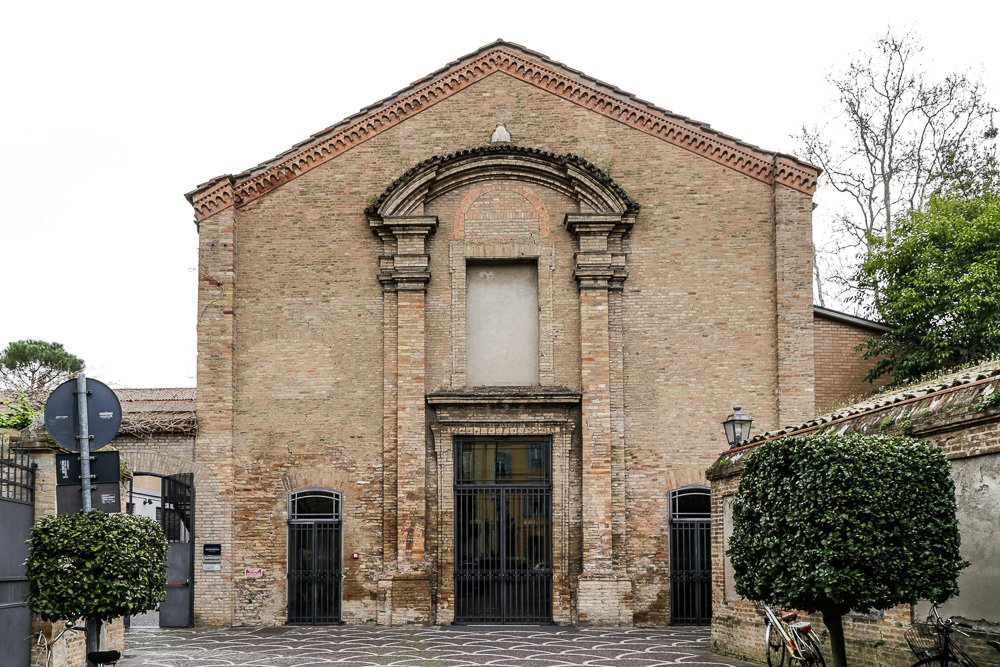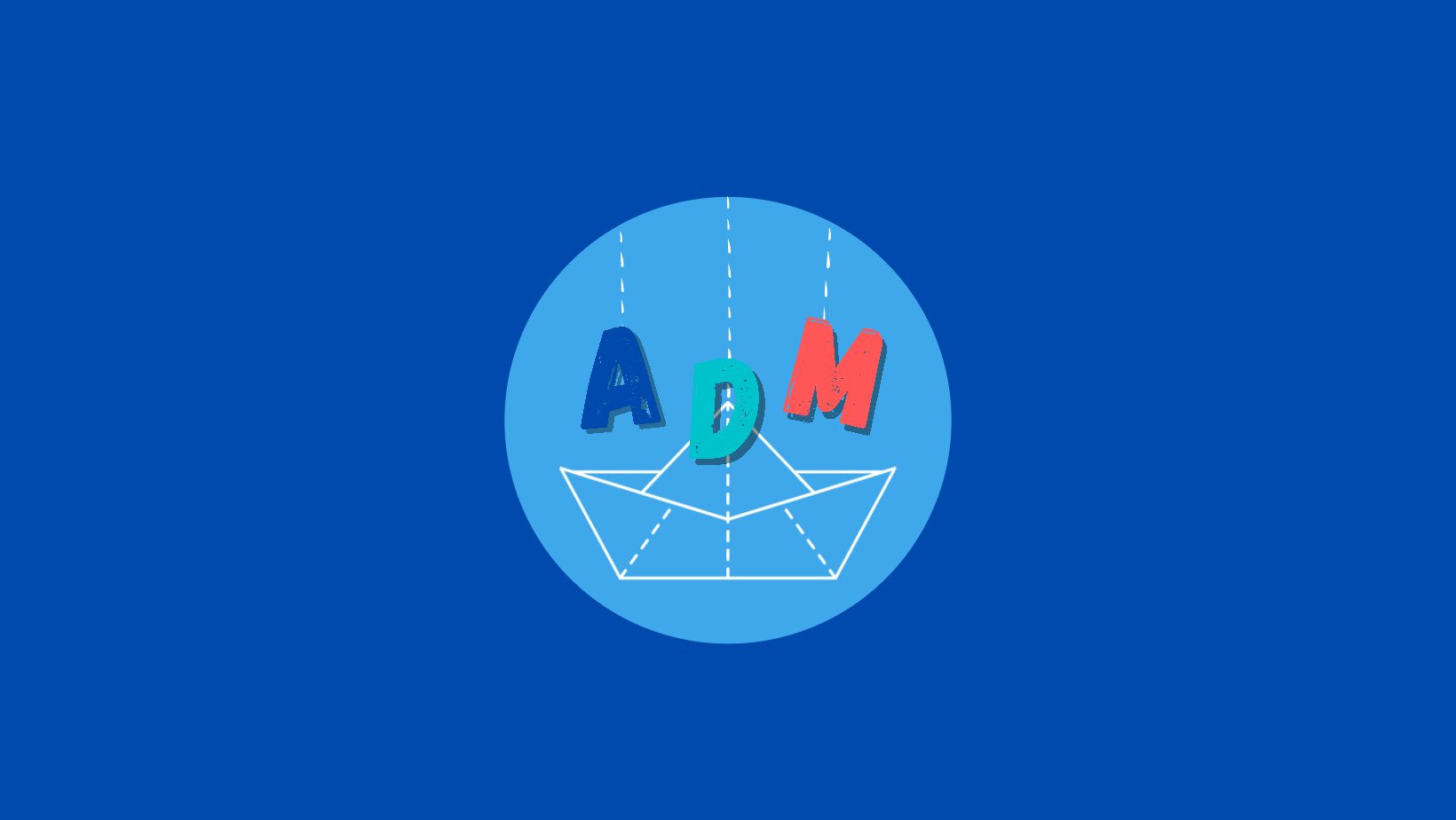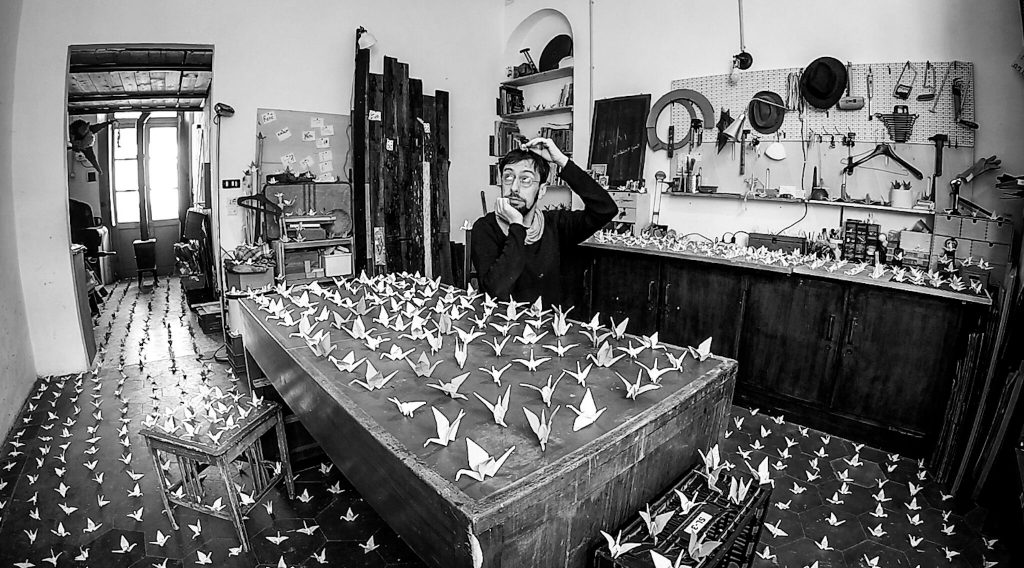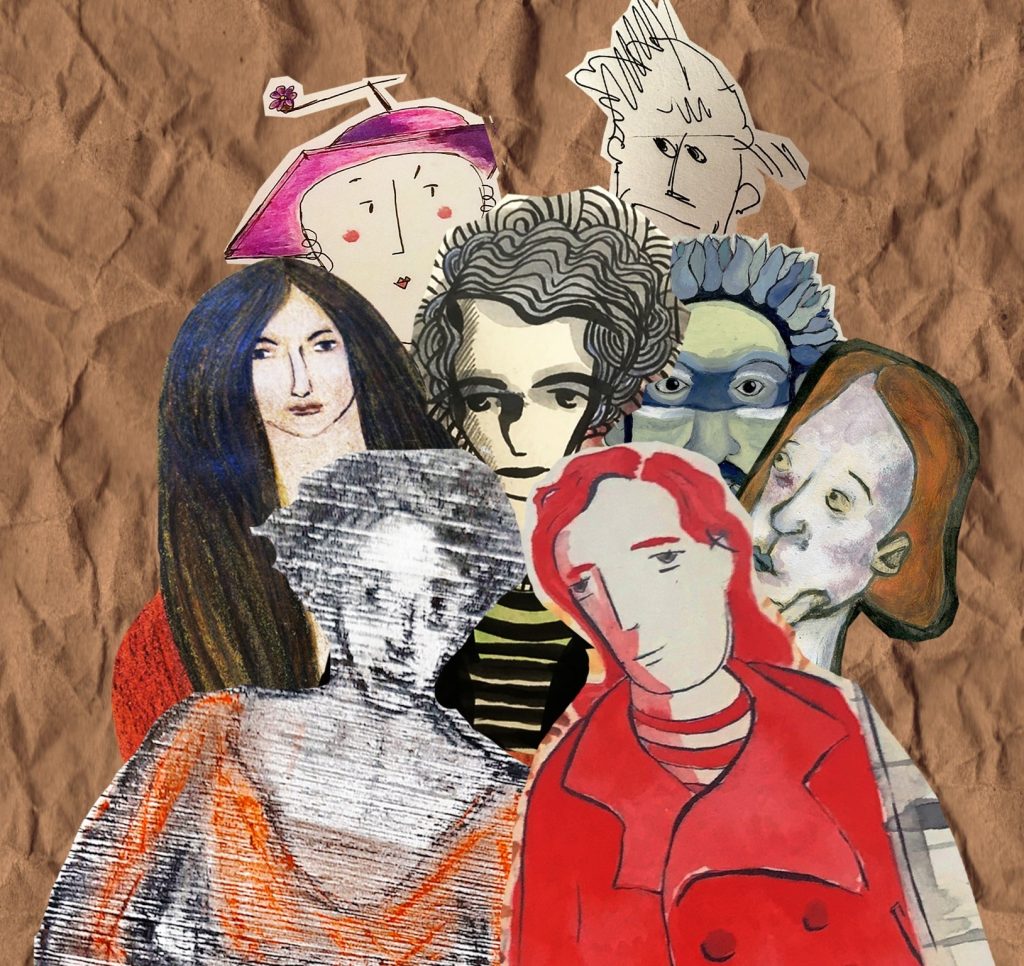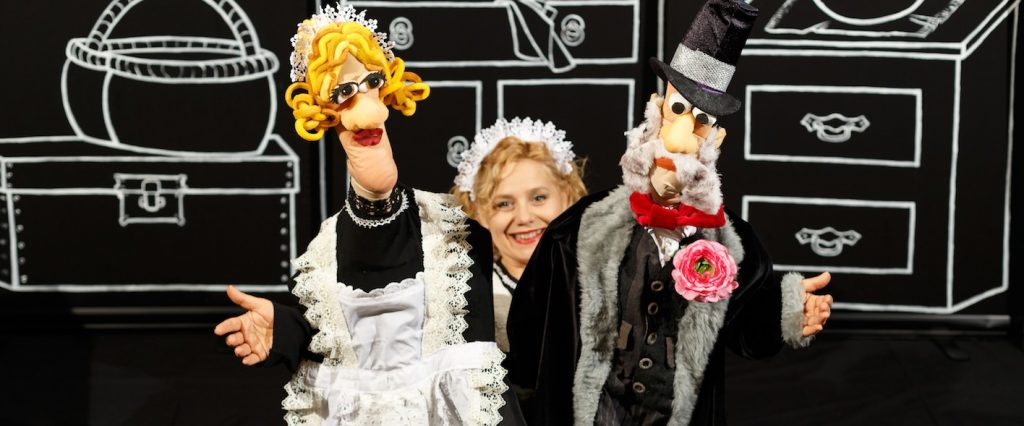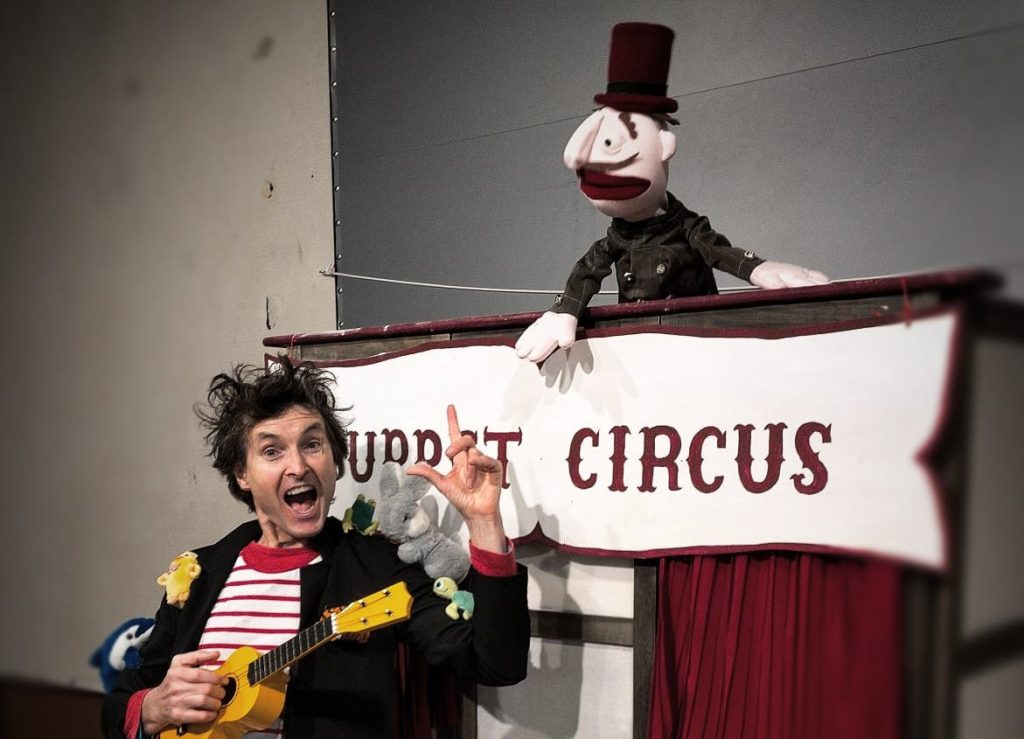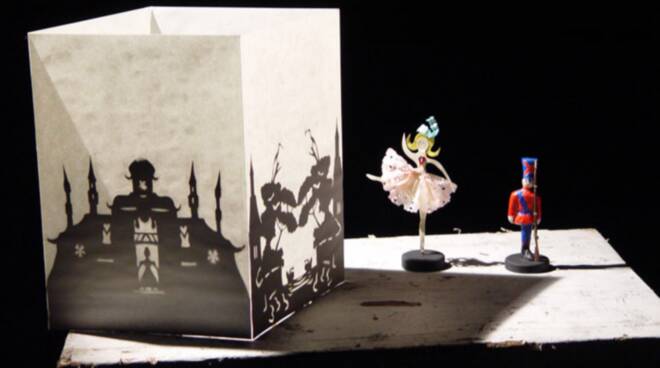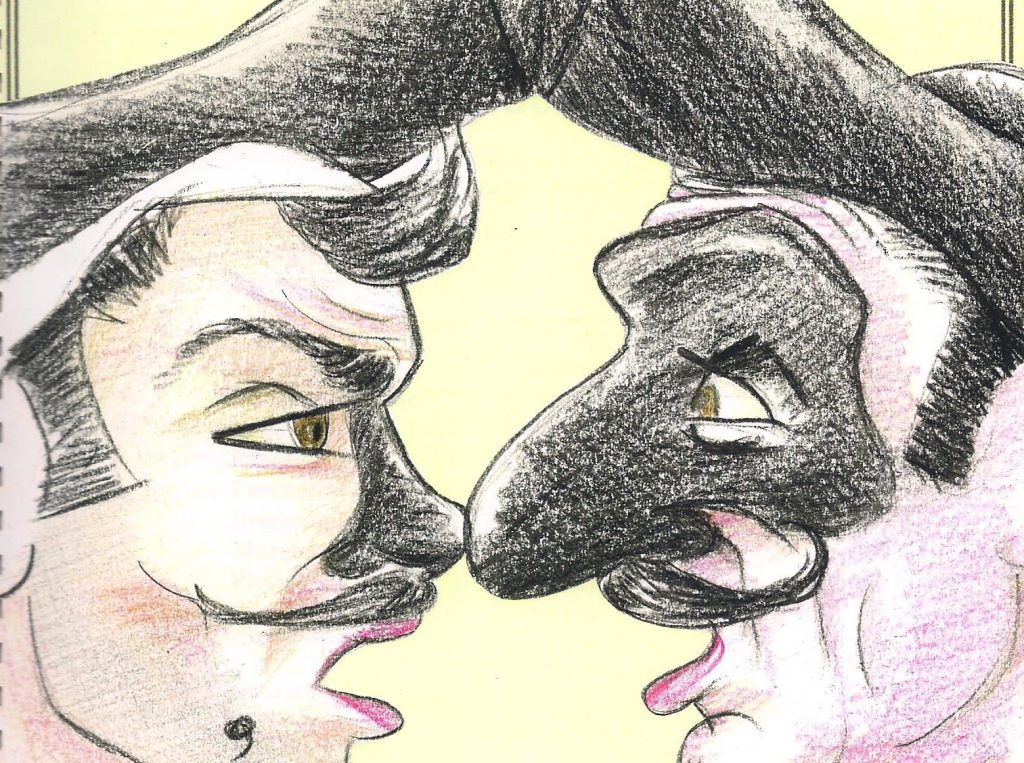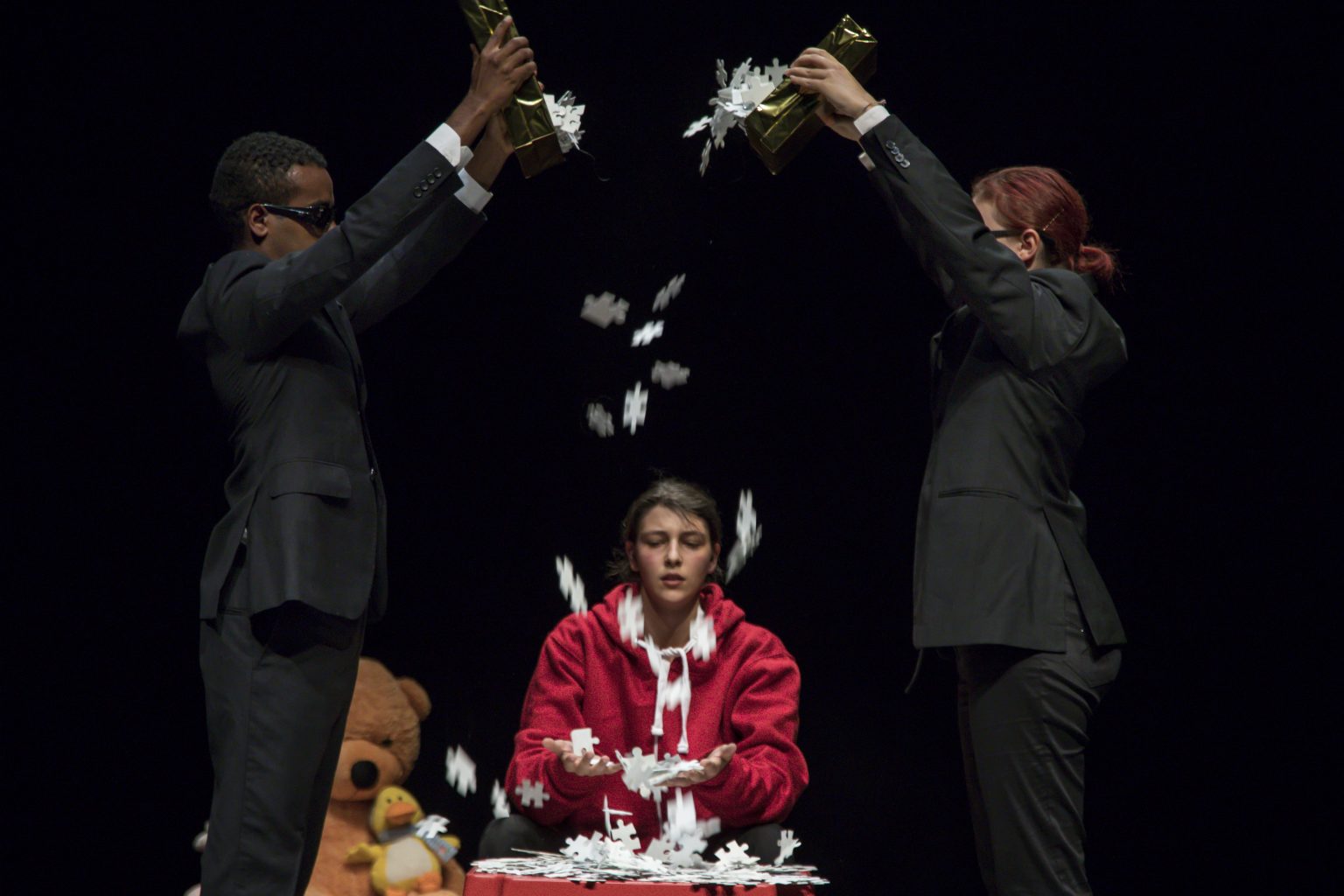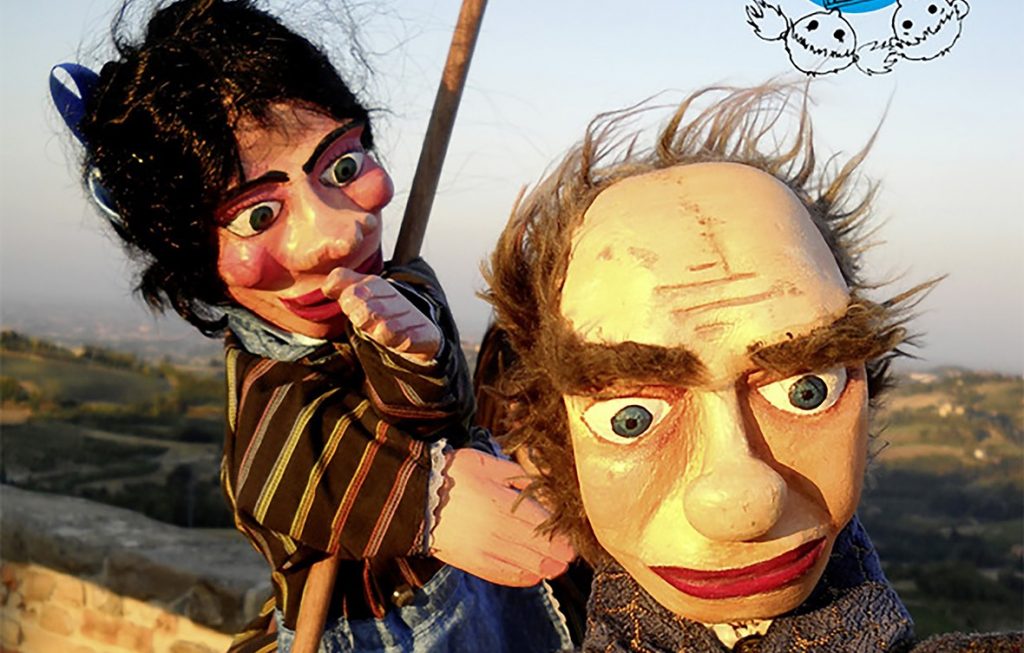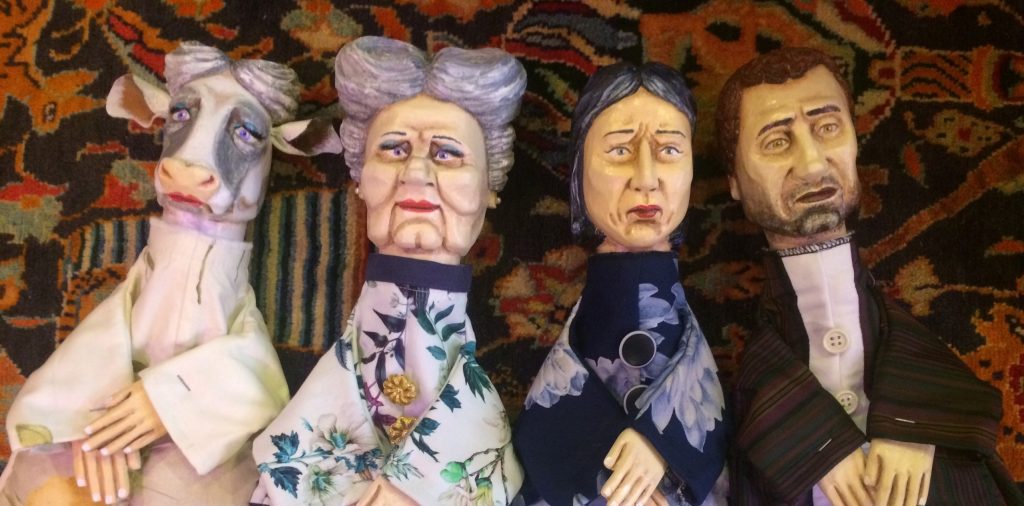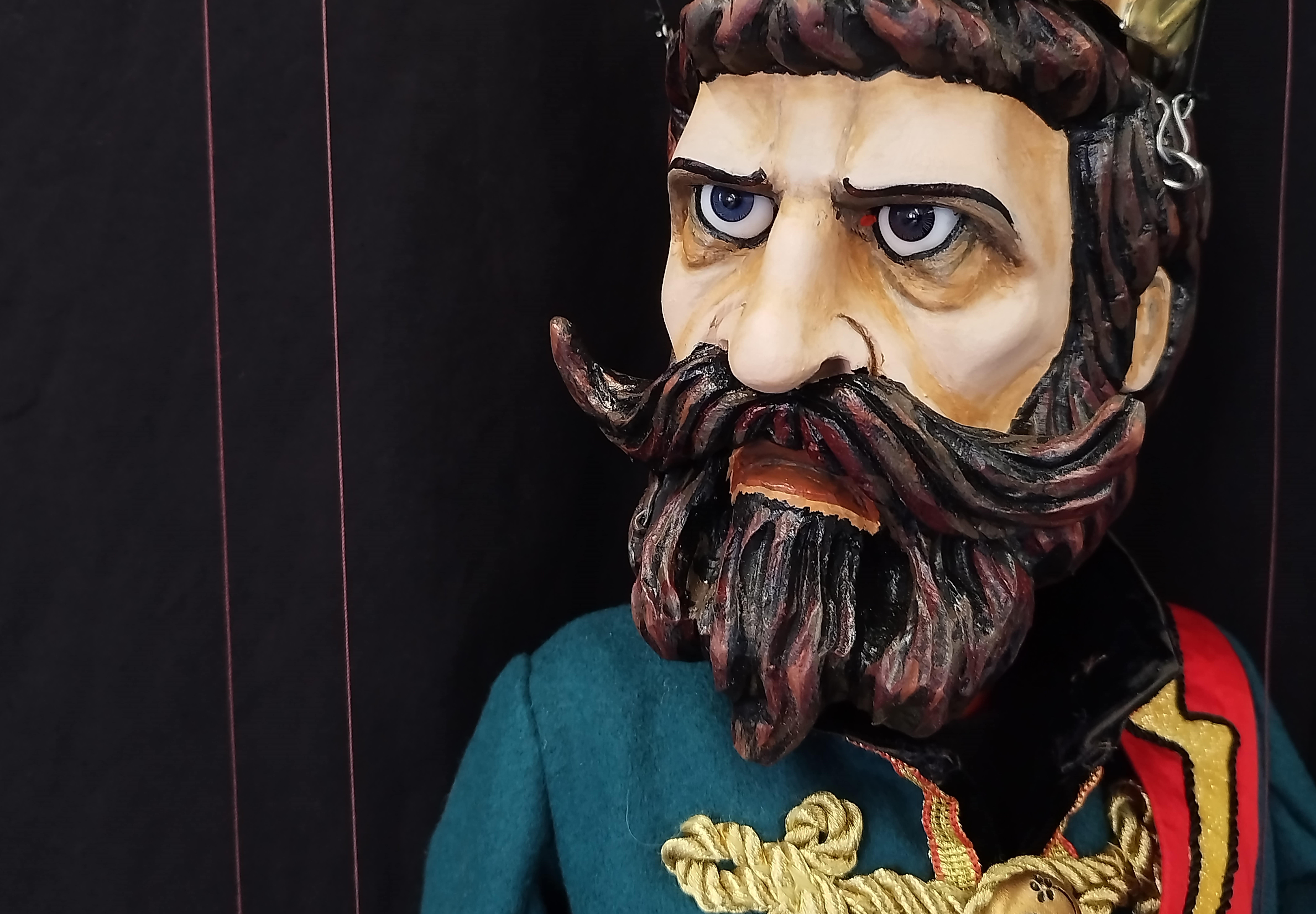
Teste di legno
Marionettistica Carlo Colla & Figli
TESTE DI LEGNO
Marionette a filo, per tutti con sottotitoli in lingua inglese
Martedì 23 maggio ore 21:00 – Teatro Rasi
da un’idea di Eugenio Monti Colla
musica del repertorio della Compagnia
scene, sculture e luci di Franco Citterio
costumi di Cecilia Di Marco e Maria Grazia Citterio
direzione tecnica di Tiziano Marcolegio
regia di Franco Citterio e Giovanni Schiavolin
Il marionettista è un artigiano che costruisce gli oggetti che utilizza come strumento espressivo per narrare storie, racconti e trame portando lo spettatore in luoghi, epoche e dimensioni apparentemente lontane dalla propria realtà ma che, sorprendentemente, risultano esserne lo specchio o il riflesso. Ed è proprio la capacità evocativa della marionetta, il piccolo attore che prende vita in una forma differente ed in parallasse rispetto a quella del suo animatore, a divenire soggetto di una spettacolazione dove proprio questo antico mestiere e questo strumento assumono la funzione di tematica narrativa. Negli immensi depositi della Compagnia Marionettistica Carlo Colla & Figli, giacciono appesi, apparentemente inermi, più di tremila personaggi dalle caratteristiche e dalle fattezze disparate al punto che a volte ci si domanda in quale strana trama possano coesistere. Attingendo proprio a questo vasto patrimonio, lo spettacolo propone un viaggio trasversale fra le tematiche del consueto repertorio ma che, in questo caso, si sviluppa parallelamente su dimensioni differenti: quella della sfera artigianale del mestiere dell’animatore, fatta di creazione ed espressione, e quella della vita dei personaggi di legno che ci si immagina possano esistere in una relazione riflessa che appartiene solo a loro e al mondo della fantasia. La parabola drammaturgica dello spettacolo si ispira ad un vecchio canovaccio, dove le marionette, al termine della giornata, abbandonate nei loro armadi, prendono vita autonoma. Personaggi del mondo delle fiabe, della narrativa per ragazzi o di racconti fantastici si presentano ma, ad un tratto, il più terribile di loro, Re Barbarus, trovando un ritaglio di un vecchio giornale abbandonato dagli umani che parla di una “grande guerra”, viene folgorato dal folle sogno di conquistare il mondo. Le idee prendono il sopravvento sulla realtà, ma non tutto andrà per il verso giusto, visto che, al primo chiarore del mattino, al ritorno del marionettista, tutto viene riposto in ordine ed anche Re Barbarus tornerà ad essere una semplice marionetta. In un percorso modulare costituito da uno sviluppo narrativo con momenti e personaggi tratti dal vasto repertorio della Compagnia, vengono affrontati il tema della spensieratezza, della semplicità, dell’amore e dell’armonia, che si contrappongono a quello delle ombre, della tirannia, dell’oppressione e della megalomania, diventando spunto tematico e coreografico per una sorta di danza di marionette e sagome (cartonaggi), parodia dei sentimenti, dei pregi e dei difetti umani, nonché del rapporto fra l’uomo e il proprio pianeta, che, si spera, possa essere sempre “appeso ad un filo di poesia”.
English version
The puppeteer is a craftsman who builds objects that he uses as an expressive tool to narrate stories, tales and plots, taking the viewer to places, eras and dimensions apparently far from his own reality but which, surprisingly, turn out to be its mirror or reflection. And it is precisely the evocative capacity of the puppet, the little actor who comes to life in a different form and in parallax with respect to that of his animator, to become the subject of a show where this ancient craft and this instrument take on the function of narrative theme. In the immense deposits of the Carlo Colla & Figli Puppetry Company, hang, apparently helpless, more than three thousand characters with disparate characteristics and features to the point that sometimes one wonders in which strange plot they can coexist. Drawing precisely on this vast heritage, the show offers a transversal journey through the themes of the usual repertoire but which, in this case, develops in parallel on different dimensions: that of the artisanal sphere of the animator’s profession, made up of creation and expression, and that of the life of the wooden characters that one imagines could exist in a reflected relationship that belongs only to them and to the world of fantasy. The dramaturgical parable of the show is inspired by an old canvas, where the puppets, abandoned in their closets at the end of the day, take on an autonomous life. Characters from the world of fairy tales, children’s fiction or fantastic stories present themselves but, suddenly, the most terrible of them, King Barbarus, finding a clipping from an old newspaper abandoned by humans that speaks of a “great war”, he is struck by the crazy dream of conquering the world. Ideas take over reality, but not everything will go the right way, given that, at the first light of the morning, when the puppeteer returns, everything is put back in order and even King Barbarus will go back to being a simple puppet. In a modular path consisting of a narrative development with moments and characters taken from the Company’s vast repertoire, the theme of light-heartedness, simplicity, love and harmony are addressed, which are opposed to that of shadows, tyranny, oppression and megalomania, becoming the thematic and choreographic starting point for a sort of dance of puppets and shapes (cardboard pieces), a parody of feelings, of human strengths and weaknesses, as well as of the relationship between man and his planet, which, he hopes, can always be “hanging by a thread of poetry”.
